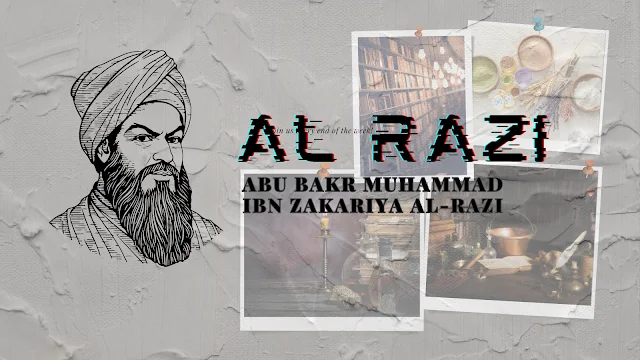Introduction:
In the tapestry of history, few figures shine as brightly as Al-Razi, also known as Rhazes, a polymath whose contributions during the Golden Age of Islamic Medicine continue to influence the fields of medicine, chemistry, and philosophy. Born in 865 in the vibrant city of Rayy, near present-day Tehran, Iran, Al-Razi became a beacon of knowledge and innovation, leaving an indelible mark on the annals of science.
Early Life:
The illustrious figure known as Al-Razi, born Abu Bakr Muhammad ibn Zakariya al-Razi in 865 in the city of Rayy, near modern-day Tehran, had a childhood marked by intellectual curiosity and early exposure to a diverse range of subjects. His given name, Abu Bakr Muhammad ibn Zakariya al-Razi, reflects his Arabian lineage and laid the foundation for a life dedicated to scholarly pursuits. Growing up in an environment that valued knowledge, Al-Razi’s early years set the stage for a multifaceted career that would significantly impact the fields of medicine, alchemy, and philosophy.
Early Education:
Under the guidance of his father, Al-Razi embarked on a journey of education that spanned music, literature, philosophy, and the sciences. His early exposure to various disciplines cultivated a broad intellectual framework, shaping his future endeavors. This early education proved instrumental in fostering the inquisitive mind that would later lead Al-Razi to become a renowned physician and scholar. The intersection of his real name, Abu Bakr Muhammad ibn Zakariya al-Razi, and his formative education unveils the roots of his intellectual prowess, setting the stage for a lifetime of groundbreaking contributions to the world of knowledge.
Pioneering Medical Treatises:
The cornerstone of Al-Razi’s contributions was the monumental “Kitab al-Hawi” (Continens), a comprehensive medical encyclopedia that amalgamated the wisdom of his predecessors with his groundbreaking insights. This magnum opus covered an extensive range of medical topics, from pharmacology to infectious diseases, showcasing Al-Razi’s holistic approach to healthcare and the integration of various disciplines.
Innovations in Pharmacy:
Al-Razi’s impact on pharmacy reverberates through time. His experiments led to the discovery of sulfuric acid, and his advancements in distillation techniques proved transformative for the field. Beyond the laboratory, Al-Razi’s work laid the foundation for the understanding and application of medicinal substances, becoming a guiding light for future developments in pharmacy and alchemy.
Clinical Observation and Diagnosis:
Al-Razi’s legacy extends to his emphasis on empirical evidence in medical practice. Rejecting unfounded beliefs, he advocated for a systematic approach to understanding diseases through clinical observation and diagnosis. This evidence-based mindset, a hallmark of modern medicine, stems from Al-Razi’s dedication to grounding medical knowledge in practical, observable realities.
Legacy and Influence:
The enduring impact of Al-Razi is evident in the numerous medical terms and concepts attributed to him. The term “alcohol,” derived from the Arabic “al-kuḥl,” reflects Al-Razi’s pioneering work in distillation. His influence transcended cultural and linguistic boundaries, with his works translated into Latin and becoming foundational texts for European scholars during the Middle Ages.
Contributions to Philosophy:
Al-Razi’s intellectual prowess wasn’t confined to medicine and chemistry; he also made significant contributions to philosophy. His philosophical inquiries explored the nature of existence, ethics, and the pursuit of knowledge, demonstrating a holistic worldview that went beyond the confines of his medical expertise.
Conclusion:
In conclusion, Al-Razi emerges as a towering figure of the Golden Age of Islamic Medicine, a polymath whose contributions continue to resonate across centuries. His insatiable curiosity, empirical approach, and interdisciplinary mindset not only shaped the scientific landscape of his time but also laid the groundwork for modern medical practices. As we reflect on the life and work of this remarkable individual, Al-Razi’s legacy remains a testament to the enduring power of knowledge and the profound impact one individual can have on the trajectory of human understanding.






